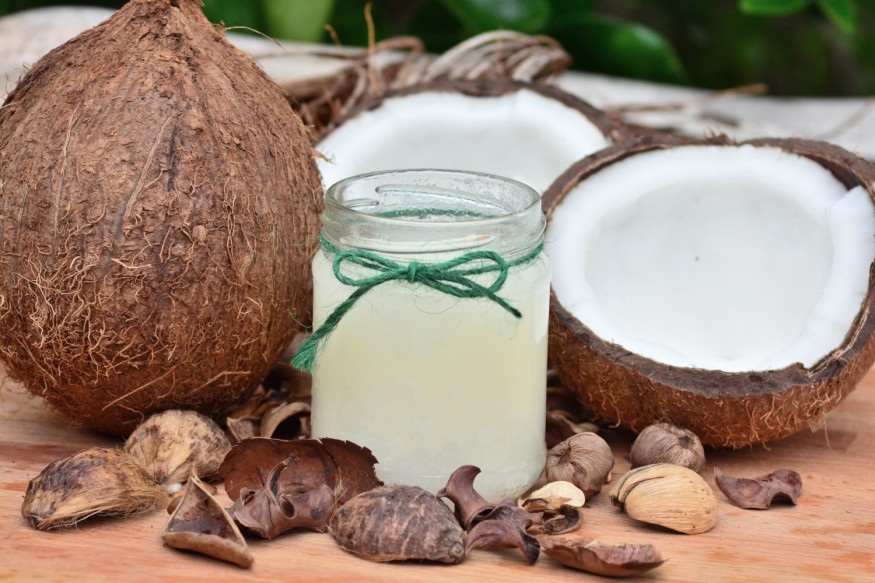Coconut Oil is Effective for Newborn Babies' Cradle Cap
Taking care of your newborn baby might be confusing, especially if you are a first-time mom.
You might notice at first some crusty, yellow or white, scaly patches on their scalp, which you might attribute from you not bathing them enough.
These patches might be found on their hair, behind their ears, on their forehead, eyebrows and areas where their skin folds, according to Healthline.
But this should not cause for panic. It is just a mild case of cradle crap. This is just a harmless issue that you might find annoying at some point.

Related story : Can Virgin Coconut Oil Be an Antioxidant Agent?
Luckily, coconut oil can be of help when caring for your newborn baby. Cradle cap or crib cap is called seborrheic eczema or seborrheic dermatitis, which is the same condition that causes dandruff in adults.
Pediatricians are not exactly sure what causes it to begin with, making cradle cap difficult to prevent.
However, there are theories surrounding as to what actually causes cradle cap in your newborn babies. One is that it has something to do with the hormones that pass from you to your baby before they are born.
Healthline reported that those hormones can cause too much oil production in your baby's oil glands and hair follicles. Another cause could be due a type of yeast called Malassezia that grows in your baby's hair.
The good news is, this condition does not last long for babies. It is common in newborn and babies under the age of three months. It then usually goes away on its own between the ages of six months and one year.
Coconut Oil's Benefits
Healthline reported that several parents swear by the use of coconut oil as a treatment for cradle cap.
However, scientifically speaking, there is not evidence supporting the anecdotal claims.
Coconut still helps as it moisturizes dry and flaky skin, which could loosen cradle cap flakes while also nourishing the skin on your baby's scalp.
Coconut oil is also often used to reduce the symptoms of eczema, which is the reason why it is one of the common ingredients in creating skin moisturizers, soaps, and shampoos.
Related story : Why Celebrities Are Swearing by Coconut Oil Benefits
Aside from its moisturizing factors, coconut oil also has antibacterial properties, which can help treat minor skin infections.
Is Coconut Oil Safe?
There shouldn't be any problems when using coconut oil for your baby, unless your baby has an allergy to coconuts. If unsure, do not use coconut oil on your baby if there is a clear history of coconut oil allergy in your family.
Meanwhile, if ever you decided to give coconut oil a try, go for the virgin coconut oil. It is supposed to more natural as it comes from fresh coconuts and is less processed that other oils.
This also means that it does not usually have added chemicals or perfumes that could irritate your newborn's sensitive skin.
Double check the ingredients to make sure it is pure.When applying coconut oil to your baby's scalp, wash your hands and gently apply it to the skin.
If you notice any allergic reaction, stop using it immediately and do not use too much of the product.
Subscribe to Latin Post!
Sign up for our free newsletter for the Latest coverage!
© 2026 Latin Post. All rights reserved. Do not reproduce without permission.














